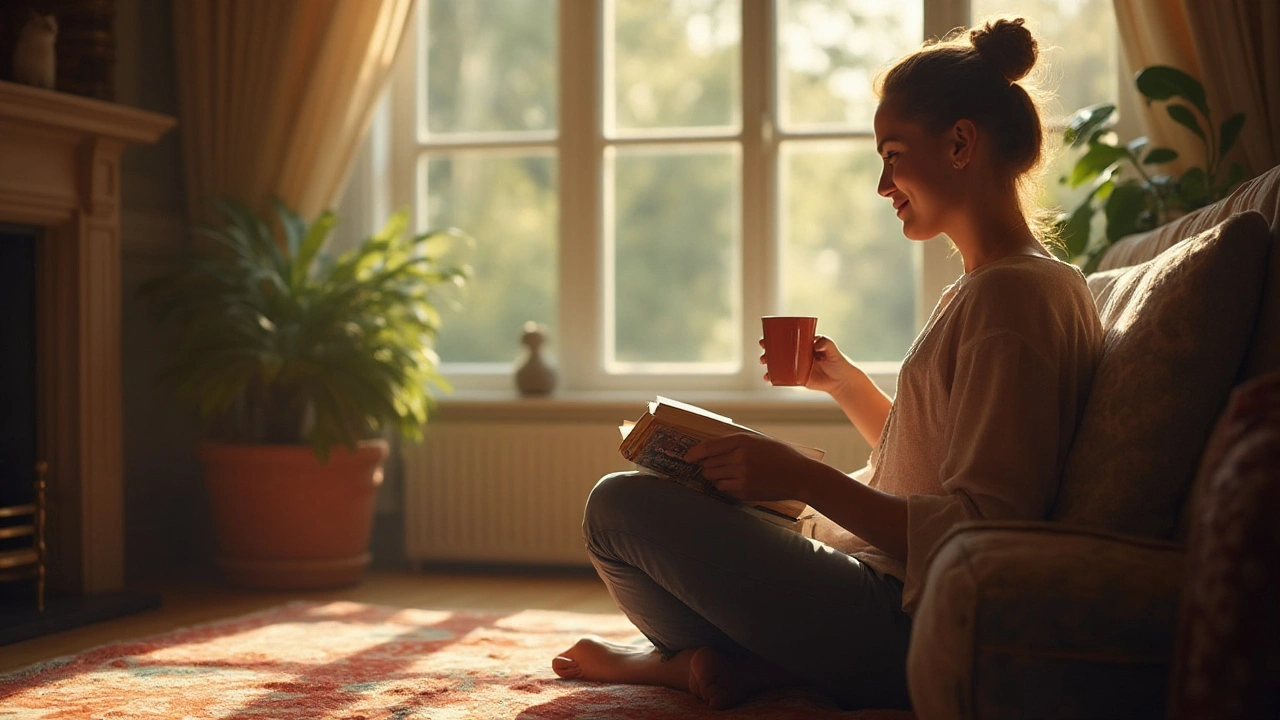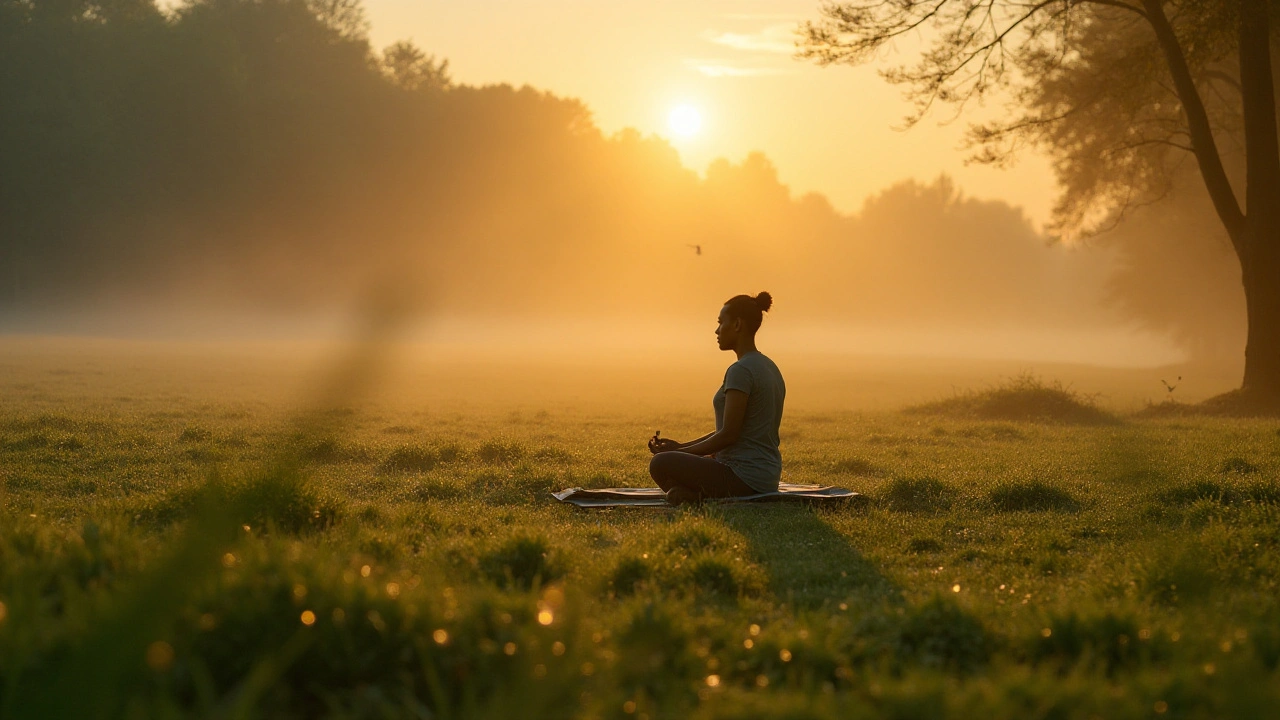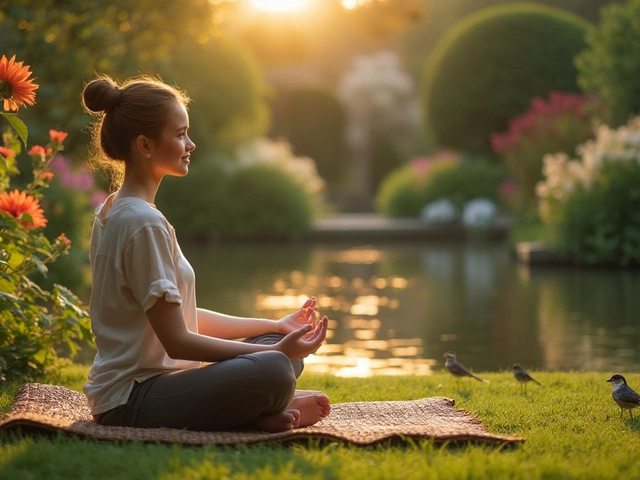In an era where life's demands are constantly increasing, stress has become an inevitable companion for many. Yet, it's vital to recognize that this doesn't have to be the case. Understanding stress, its causes and effects, opens the door to a wide array of strategies that can help manage and reduce its impact.
Implementing simple yet effective daily practices can greatly alleviate stress and contribute to a more balanced and joyful life. From the small routines that fit into your daily life to the serenity of mindfulness, each step plays a role in achieving emotional tranquility.
Whether it's learning the art of relaxation or redesigning your personal space to minimize stress triggers, each approach serves as a powerful tool in the quest for happiness. Transform your life by exploring these practical, stress-reducing methods today.
- Understanding Stress
- Daily Practices for Stress Relief
- Mindfulness and Relaxation Techniques
- Creating a Stress-Free Environment
Understanding Stress
Stress is a natural part of life, and without it, humanity might not have survived the trials of evolution. At its core, stress is a biological response that prepares the body to face threats, known as the 'fight or flight' reaction. This response, controlled by our autonomic nervous system, releases hormones like adrenaline and cortisol, which equip us with the energy to react swiftly to danger. Yet, in today's world, where physical threats are less common, stressors have transformed into work deadlines, financial pressures, and personal relationships. These modern stressors can trigger the same physiological responses, and when they are constant, they negatively impact health.
It's vital to differentiate between acute and chronic stress. Acute stress, which might stem from facing an immediate challenge, often serves as a useful spur to action. In contrast, chronic stress arises from ongoing issues and can lead to serious health consequences. Dr. Hans Selye, a pioneering endocrinologist, coined the term "stress" in the 1930s and profoundly influenced how we perceive stress today. He identified that while stress itself isn't inherently bad, constant exposure without adequate recovery can lead to what he termed "diseases of adaptation."
"It's not stress that kills us, it is our reaction to it," remarked Hans Selye, encapsulating the essence of managing stress effectively.
To address chronic stress, one must first recognize its symptoms, which can manifest both physically and mentally. Individuals may experience fatigue, irritability, and even physical pain. Emotionally, stress can give rise to anxiety and depression. Acknowledging these symptoms is the first crucial step toward effective stress management. Various studies have shown that the body's response to stress varies significantly among individuals, often influenced by genetics, environment, and personal history. For instance, a 2023 study published in the Journal of Behavioral Medicine found that people who practiced regular meditation exhibited reduced levels of cortisol, the primary stress hormone.
Understanding stress also involves recognizing the factors that contribute to its onset. Key contributors can include lack of control, overwhelming responsibilities, and changing life circumstances. One fascinating aspect is the role of perception in stress; how an individual perceives a situation can significantly influence their response. Cognitive-behavioral therapy often emphasizes changing perception to help manage stress more effectively. This remedy aligns with findings that suggest a shift in how stressful situations are viewed can mitigate their impact.
The journey to managing stress begins with awareness. By identifying its sources and acknowledging its symptoms, individuals can take proactive steps to mitigate its effects. From adopting mindful practices to seeking professional guidance, the path to navigating stress is diverse and personal. As society continues to evolve, so too does the understanding of stress, shaping how it is managed for mental health and happiness.

Daily Practices for Stress Relief
One effective pathway toward a less stressful life involves incorporating simple yet transformative daily practices that focus on stress management. It's remarkable how small changes in everyday routines can reduce stress levels significantly, leading to enhanced mental health and happiness. Starting your day with intention can set the tone for a peaceful and successful day. Morning rituals, such as stretching or spending a few moments appreciating nature, can greatly reduce stress before life's pressures take hold. Creating a morning routine that involves activities you find soothing can serve as a crucial foundation for resilience against stress throughout the day.
Mindfulness exercises, when practiced consistently, are powerful tools that empower individuals to live in the moment with a clear mind. Practicing mindfulness can be as simple as taking slow, deep breaths and focusing on the sensations with each inhale and exhale. This act not only grounds you but also sends signals to the brain to calm down. Studies show that over half of those who regularly practice mindfulness report feeling less stressed in their daily lives. Mindfulness can quickly become a tool you reach for whenever stress starts to build up, allowing you to maintain balance even in challenging situations.
How you choose to unwind at the end of the day is equally important for stress management. Evening rituals often help transition the body from the day's activity to a state of relaxation. Such routines can include activities like reading a book, listening to calming music, or meditating. The goal is to create a calming atmosphere that encourages relaxation and a peaceful night's sleep. Since sleep is a critical factor in managing mental health, establishing a nightly routine that promotes good sleep hygiene will significantly impact long-term stress reduction.
Regular physical activity is an essential component of any stress relief regimen. When you exercise, your body releases endorphins, which are natural mood lifters that not only help reduce stress but also increase happiness. Whether you enjoy walking, jogging, dancing, or practicing yoga, physical movement is pivotal in maintaining physical and emotional well-being. According to the Anxiety and Depression Association of America, physical activity reduces fatigue, improves alertness, and enhances concentration, all of which are key components for managing stress effectively.
Alongside physical routines, maintaining a balanced nutrition plan is paramount. Eating a diet rich in fruits, vegetables, lean proteins, and whole grains bolsters your body's resilience against stress. A well-nourished body is better equipped to cope with adversity, allowing you to tackle daily challenges without feeling overwhelmed. Moreover, hydration cannot be overlooked; drinking adequate water throughout the day supports cognitive function and mood regulation, making you better prepared to deal with stressful situations.
"The greatest weapon against stress is our ability to choose one thought over another." – William James
To complement these daily practices, dedicating time to a hobby or an activity you are passionate about provides a crucial outlet for stress. Engaging in something you love offers a productive escape from stressors, allowing your mind to reset and recharge. Whether it's painting, gardening, or writing, these activities enrich your life and provide joy, ultimately contributing to your overall happiness.

Mindfulness and Relaxation Techniques
In the hustle and bustle of daily life, practicing mindfulness can be a powerful antidote to stress. This age-old technique, rooted in Buddhist traditions, focuses on bringing one's attention to the present moment without judgment. It has gained significant attention in modern psychology for its effectiveness in reducing stress and improving mental well-being. The science behind mindfulness shows that it can lead to changes in the structure of the brain, promoting regions tied to attention, emotion regulation, and introspective awareness. Studies suggest that even a few minutes a day of sitting quietly and focusing on breath can lead to better emotional health.
One popular technique within mindfulness is deep breathing, which is straightforward yet profoundly effective. When faced with stress, the body's 'fight or flight' response kicks in, increasing heart rate and blood pressure. Deep breathing helps counteract this response. By taking slow, deliberate breaths, you communicate to your nervous system that it is safe to relax. Many find that setting aside just ten minutes each morning to practice deep breathing can set a calming tone for the day, and in case of stressful events, it can serve as an immediate relief mechanism.
In addition to mindfulness, relaxation techniques such as progressive muscle relaxation and guided imagery offer practical approaches to diffuse tension. These methods involve tensing and then slowly releasing each muscle group in the body or visualizing peaceful imagery, respectively. Over time, these practices can help individuals recognize the areas where they hold stress and consciously release it.
Jon Kabat-Zinn, a pioneer of mindfulness, once said, "Mindfulness is a way of befriending ourselves and our experience." This approach not only enhances emotional intelligence but also fosters a nurturing relationship with oneself.
Mindfulness can seamlessly blend into daily activities as well. Simple acts like mindful walking or eating practice mean simply paying full attention to the task, noticing physical sensations, thoughts, and emotions that arise in real-time. When walking, feel the ground beneath your feet, the air on your skin, the rhythm of your movements. It transforms what seems mundane into a source of appreciation and insight. Similarly, mindful eating encourages savoring each bite, being fully aware of the food's taste, texture, and nutritional value. This holistic approach connects us deeper to life’s simplest pleasures, often lost in the fast-paced world.
A balanced combination of relaxation techniques alongside mindfulness enriches the stress-reduction toolkit significantly. By incorporating these practices into everyday life, one can not only alleviate the symptoms of stress but cultivate a lasting state of mental peace and happiness. With an increase in technological distractions and societal pressures, returning to these foundational practices can offer a sanctuary of calm and clarity in an otherwise chaotic environment.
| Technique | Benefits |
|---|---|
| Deep Breathing | Reduces heart rate, calms the mind |
| Progressive Muscle Relaxation | Increases body awareness, relieves tension |
| Guided Imagery | Reduces anxiety, invokes tranquility |

Creating a Stress-Free Environment
Establishing a stress-free environment is no small feat, but it can be one of the most powerful steps towards enhancing your mental health and happiness. Our physical surroundings often have a profound impact on our emotional well-being, affecting our mood, productivity, and even our relationships. Begin by decluttering your space, as a tidy environment can significantly reduce stress levels. The process of decluttering forces you to confront your belongings and make decisions about what is truly necessary, creating room for greater peace of mind. Studies have shown that a cluttered environment can lead to feelings of anxiety and overwhelm, which is why maintaining an orderly space is crucial.
"The simple act of tidying and decluttering your immediate surrounding can create a calming ripple effect on your mental state," notes Marie Kondo, the renowned tidying expert.
In addition to decluttering, paying attention to your home's decor can play an essential role in fostering a relaxing atmosphere. Soft lighting, soothing colors, and elements of nature can turn an otherwise mundane space into a sanctuary. Research has indicated that incorporating natural elements such as plants or water features can lower stress by bringing a sense of tranquility and connecting us to nature. When you see a hint of green in your surrounding, it is like having a steady reminder of serenity and life, both energetic and calming in its essence. Consider shades of blue or green for walls, known for their calming effects, or introduce aromatherapy with the use of essential oils or incense to elevate the serenity of your space.
Another key aspect of a stress-free environment is minimizing distractions, particularly those of the digital kind. Creating technology-free zones can limit interruptions and promote focus and mindfulness, essential components of effective stress management. Organize and limit the number of devices you use within your space. Designate certain areas as tech-free to encourage activities that promote relaxation, such as reading or meditation. Establishing these zones allows the mind a break from the constant barrage of notifications, sound, and screen time.
Furthermore, soundscapes can have a direct effect on our stress levels. Consider integrating ambient sounds or music that promotes relaxation within your environment. Soft music or the gentle sounds of nature can drown out the stress-inducing noise pollution from outside, serving as a powerful tool in your stress reduction arsenal. For instance, white noise or nature sounds can be especially beneficial during sleep, enhancing restfulness and overall mood by creating a calming backdrop.
As you shape your environment into a realm of tranquility, remember the importance of personalization. Your space should be a reflection of what brings you joy and comfort. Display personal items that provoke positive memories and emotions, from cherished photographs to treasured memorabilia. Such personal touches not only uplift your mood but also provide a sense of grounding and security, further amplifying the stress-free ambiance of your space. Tailor your environment to reflect your tastes and preferences, as a personalized space is where you truly find comfort and refuge.






